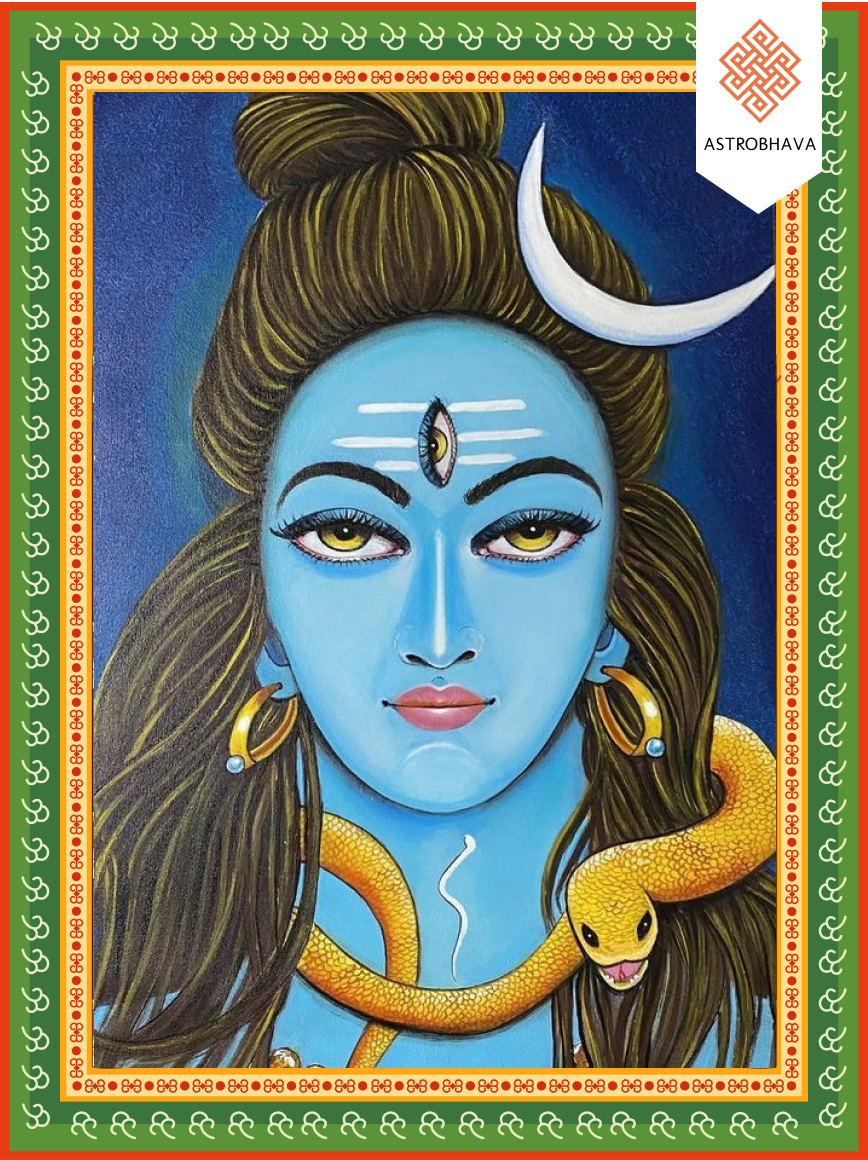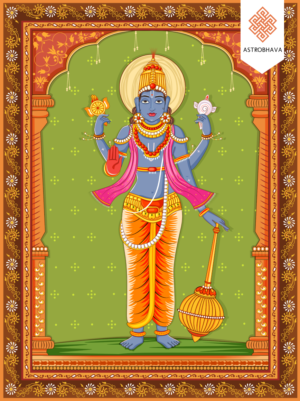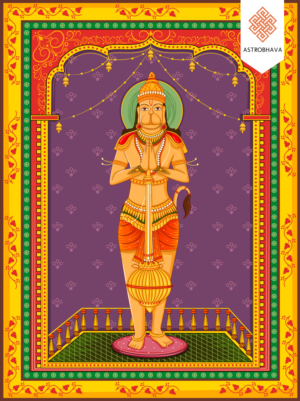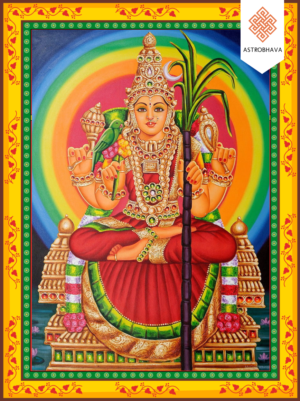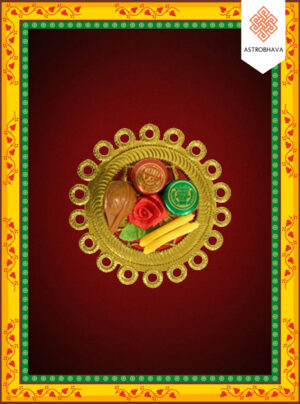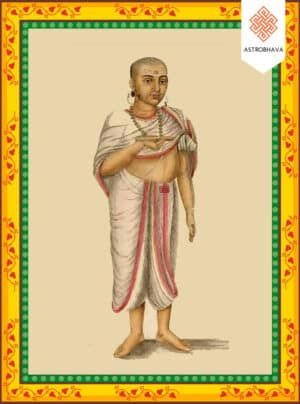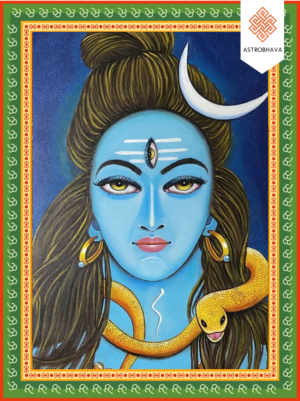Dhara
₹150 – ₹1,000
Dhara to Shivalinga is a sacred ritual where various liquids are continuously poured over the Shivalinga, symbolizing the continuous flow of divine grace. Water Dhara, Oil Dhara, and Ghee Dhara each hold unique significance, providing specific blessings and enhancing spiritual connection. Experience the transformative power of Dhara to Shivalinga to invoke Lord Shiva’s blessings for health, prosperity, and spiritual growth.
Water Dhara:
-
Purification and Cooling:
Water Dhara symbolizes purity and the flow of life. Pouring water continuously over the Shivalinga purifies the devotee’s mind and soul, washing away negative energies and impurities.
-
Healing and Peace:
Water, being a cooling element, helps calm the mind and body, promoting mental peace and emotional stability. It is especially beneficial for seeking relief from stress and health issues.
-
Spiritual Awakening:
The ritual enhances spiritual awareness and growth, as water is associated with divine consciousness and spiritual enlightenment.
Oil Dhara:
-
Strength and Vitality:
Oil Dhara symbolizes strength and sustenance. Pouring oil over the Shivalinga nourishes the devotee’s physical and spiritual body, enhancing vitality and energy.
-
Protection and Stability:
Oil creates a protective barrier, symbolizing the protection from negative influences and stability in life. It is particularly effective for overcoming obstacles and achieving personal and professional stability.
-
Material Prosperity:
The richness of oil attracts material wealth and prosperity, ensuring financial stability and growth.
Ghee Dhara:
-
Purity and Illumination:
Ghee, or clarified butter, represents the purest form of sustenance. Ghee Dhara purifies the devotee’s aura and surroundings, removing deep-seated impurities and negativity.
-
Spiritual Elevation:
The illumination provided by ghee symbolizes spiritual enlightenment and divine knowledge. This ritual enhances spiritual growth and fosters a deep connection with Lord Shiva.
-
Divine Blessings and Prosperity:
Ghee Dhara attracts divine blessings for overall prosperity, health, and well-being. It ensures that the devotee’s life is filled with abundance and grace.
Benefits of Dhara
Dhara, also known as Abhishekam, is a sacred Vedic ritual that involves the continuous pouring of holy water, milk, or other sacred substances over a deity, particularly over the Shiva Linga. This ritual is believed to invoke the divine blessings of the deity, purify the mind and soul, and ensure peace, prosperity, and spiritual growth for the devotee. In temples and homes, Dhara is performed with great devotion, and it holds a significant place in Hindu religious practices.1. Removes Negative Energies and Obstacles
One of the primary benefits of this ritual is its ability to remove negative energies and obstacles from the devotee’s life. The continuous pouring of water or other sacred substances during the ritual cleanses the mind, body, and environment, ensuring that any hindrance to success or happiness is eliminated.
2. Promotes Physical and Mental Healing
This ritual is known for its healing properties, both physically and mentally. The vibrations of the mantras and the continuous flow of sacred liquids during the ritual help in reducing stress, anxiety, and ailments, promoting overall health and well-being.
3. Brings Prosperity and Wealth
Performing this ritual regularly, especially over a Shiva Linga, attracts prosperity and wealth. Lord Shiva is known as the giver of material and spiritual wealth, and his blessings ensure financial growth and stability in the devotee’s life.
4. Enhances Mental Clarity and Focus
The ritual helps clear mental confusion and improves focus. The meditative atmosphere created during the ritual, combined with the calming sound of flowing water, helps the devotee achieve clarity of thought and make better decisions.
5. Increases Devotion and Spiritual Growth
A deeply spiritual ritual that strengthens the devotee’s connection with the divine. It enhances devotion, helping individuals progress on their spiritual journey and gain a deeper understanding of life’s higher purpose.
6. Purifies the Mind and Soul
One of the most significant benefits of Dhara is the purification of the mind and soul. The continuous flow of water during the ritual symbolizes the washing away of sins, negative thoughts, and past karmic actions, leaving the devotee purified and renewed.
7. Ensures Peace and Harmony in Relationships
Brings peace and harmony into relationships, especially within the family. The divine energy invoked during the ritual helps resolve conflicts, fosters understanding, and promotes love and cooperation among family members.
8. Removes Fear and Anxiety
Dhara is particularly effective in removing fear, anxiety, and stress from the mind. The calming nature of the ritual, combined with the vibrations of the mantras, creates a soothing atmosphere that instills confidence and emotional stability in the devotee.
9. Promotes Success in Career and Business
Those seeking success in their professional lives should perform Dhara, as it helps remove obstacles in career and business ventures. Lord Shiva’s blessings ensure that the devotee is guided toward prosperity, recognition, and long-term success.
10. Provides Protection from Negative Influences
Dhara acts as a protective shield against negative influences, including black magic and evil forces. The continuous offering of water and sacred substances ensures that the devotee is safeguarded from harmful energies and external threats.
11. Brings Peace of Mind and Inner Calm
The rhythmic pouring of water has a meditative effect, helping the devotee achieve inner peace and mental calm. The ritual reduces mental clutter and allows individuals to focus on their inner self, leading to a state of tranquility.
12. Helps in Attaining Moksha (Liberation)
One of the ultimate benefits of Dhara is its role in helping devotees attain Moksha, or liberation from the cycle of birth and death. The ritual purifies the soul, removing past karmic debts and guiding the devotee toward spiritual enlightenment.
13. Ensures Longevity and Good Health
Performing Dhara regularly, especially with substances like milk or honey, promotes good health and longevity. The blessings of Lord Shiva protect the devotee from diseases and ensure physical strength and vitality throughout life.
14. Promotes Family Unity and Prosperity
Dhara performed as a family ritual brings unity and prosperity to the household. It fosters a sense of togetherness, ensures that family members are protected from negative influences, and attracts wealth and success for the entire family.
15. Cleanses Negative Karma
Dhara helps cleanse negative karma accumulated from past actions. The continuous offering of water during the ritual washes away sins and purifies the soul, allowing the devotee to move forward on a positive spiritual path.
16. Strengthens Mental Discipline and Focus
The practice of Dhara requires concentration and mental discipline. By engaging in this ritual regularly, devotees develop a stronger sense of focus, self-discipline, and commitment to their spiritual and personal goals.
17. Increases Positive Energy in the Environment
Dhara not only purifies the individual but also the surrounding environment. The sacred water used during the ritual increases the positive vibrations in the home or temple, creating an atmosphere of peace, positivity, and spiritual growth.
18. Removes Financial Debts and Burdens
Devotees who are facing financial difficulties or debts can perform Dhara to seek Lord Shiva’s blessings for relief. The ritual helps remove financial obstacles, attract wealth, and ensure long-term financial stability.
19. Brings Protection from Natural Disasters
Dhara is known to provide protection from natural disasters and calamities. Lord Shiva’s blessings ensure the safety of the devotee and their family from unforeseen dangers, including earthquakes, floods, and storms.
20. Encourages Spiritual Awakening and Enlightenment
Lastly, Dhara encourages spiritual awakening and enlightenment. The continuous pouring of sacred substances over the deity, combined with the powerful mantras, helps awaken the divine consciousness within the devotee, guiding them toward spiritual fulfillment and self-realization.
In conclusion, Dhara is a highly powerful and spiritually transformative ritual that offers numerous benefits to devotees. Whether seeking prosperity, peace, health, or spiritual growth, this sacred practice ensures that Lord Shiva’s blessings permeate every aspect of life. From removing obstacles to promoting mental clarity and fostering spiritual enlightenment, Dhara allows devotees to connect deeply with the divine and receive Lord Shiva’s grace. Performing this ritual with devotion and sincerity ensures long-lasting positive effects, leading to a life filled with peace, prosperity, and spiritual fulfillment.Who can perform Dhara?
Dhara, also known as Abhishekam, is a powerful Vedic ritual involving the continuous pouring of sacred substances such as water, milk, honey, and curd over a deity, particularly Lord Shiva. This sacred act is believed to purify the mind, body, and soul while invoking divine blessings for health, wealth, success, and spiritual growth. Dhara is often performed with deep devotion, and the benefits of this ritual are immense for those seeking protection, prosperity, and inner peace.
1. Individuals Facing Obstacles in Life
People experiencing constant challenges and obstacles in their personal or professional lives should perform Dhara. The ritual helps remove obstacles and clears the path to success, allowing for smoother progress in all endeavors.
2. Those Seeking Physical and Mental Healing
Dhara is ideal for individuals suffering from chronic health issues or mental stress. The continuous pouring of sacred liquids during the ritual invokes healing energies, helping devotees recover from illness and attain peace of mind.
3. People Seeking Prosperity and Wealth
Devotees facing financial difficulties or seeking prosperity should perform Dhara. The blessings of Lord Shiva during this ritual help attract wealth, ensure financial stability, and remove obstacles related to material success.
4. Students Preparing for Exams or Facing Academic Challenges
Students aiming to excel in their studies or those facing academic challenges can perform Dhara to gain clarity of thought and improved focus. The ritual enhances memory, concentration, and academic success.
5. Individuals Struggling with Stress and Anxiety
Those dealing with stress, anxiety, or mental disturbances should perform Dhara to calm their mind and emotions. The ritual’s meditative nature helps relieve anxiety and brings mental peace and emotional balance.
6. Business Owners and Entrepreneurs Seeking Success
Business owners and entrepreneurs looking for success in their ventures can benefit from performing Dhara. The ritual invokes divine blessings to remove business-related obstacles and ensures prosperity and growth in all ventures.
7. People Seeking Peace and Harmony in Family Life
Families facing conflicts, misunderstandings, or discord should perform Dhara for peace and harmony. The ritual fosters love, understanding, and unity within the family, ensuring a harmonious home environment.
8. Those Seeking Protection from Negative Energies
Individuals who feel vulnerable to negative energies or evil influences should perform Dhara to protect themselves and their loved ones. The sacred substances and mantras used during the ritual help dispel negativity and create a protective shield.
9. Couples Seeking to Strengthen Their Relationship
Couples looking to improve their relationship or facing marital challenges should perform Dhara. The divine energy invoked during the ritual helps bring love, understanding, and mutual respect, strengthening the bond between partners.
10. People Seeking Mental Clarity and Focus
Those who struggle with confusion or indecisiveness can perform Dhara for improved clarity and focus. The continuous flow of sacred liquids helps clear mental fog and promotes better decision-making abilities.
11. Devotees Seeking Spiritual Growth and Enlightenment
Individuals on a spiritual journey or seeking deeper connection with the divine should perform Dhara to advance on their path. The ritual enhances devotion, purifies the soul, and helps devotees attain spiritual growth and enlightenment.
12. People Facing Financial Debt or Burdens
Devotees struggling with financial debt or burdens can perform Dhara to seek divine help in overcoming these challenges. The ritual removes financial obstacles and ensures long-term financial stability and freedom from debt.
13. Individuals Seeking Emotional Balance and Inner Peace
Those dealing with emotional instability or personal turmoil should perform Dhara to restore emotional balance and inner peace. The ritual helps release negative emotions, allowing for a sense of calm and contentment.
14. Couples Looking to Start a Family
Couples seeking to conceive or facing challenges in starting a family can perform Dhara to invoke the blessings of Lord Shiva for fertility and parenthood. The ritual helps remove any obstacles related to conception and childbirth.
15. People Seeking Success in Competitive Fields
Individuals working in highly competitive environments, such as sports, politics, or business, should perform Dhara for strength, determination, and success. The ritual invokes divine blessings for victory in competitive challenges.
16. Devotees Seeking Protection from Natural Calamities
Individuals who live in areas prone to natural disasters or who seek protection from natural calamities should perform Dhara. The divine grace invoked during the ritual provides protection from harm and ensures safety from unforeseen dangers.
17. People Facing Legal Challenges or Disputes
Those involved in legal battles or disputes can perform Dhara to seek favorable outcomes. The blessings of Lord Shiva help remove legal obstacles, ensuring success and justice in legal matters.
18. Individuals Seeking to Cleanse Negative Karma
People who wish to cleanse negative karma accumulated from past actions should perform Dhara. The ritual purifies the soul, removes past karmic debts, and helps devotees move forward on a positive spiritual path.
19. Those Seeking Longevity and Good Health
Dhara is ideal for those wishing to enhance their health and longevity. Performing this sacred ritual invokes the blessings of Lord Shiva, promoting physical well-being and protecting devotees from illness and disease.
20. Families Seeking Prosperity and Unity
Families looking to foster prosperity and unity within the household should perform Dhara together. The powerful energy generated during the ritual ensures success, wealth, and harmonious relationships for all family members.
In conclusion, Dhara is a transformative and spiritually powerful ritual that brings numerous benefits to devotees from all walks of life. Whether one seeks prosperity, health, peace, or spiritual growth, performing Dhara ensures that divine blessings from Lord Shiva permeate every aspect of life. From removing obstacles to promoting mental clarity and fostering emotional stability, Dhara allows devotees to connect deeply with the divine and receive Lord Shiva’s grace. By performing this ritual with sincerity and devotion, devotees can experience positive transformations in their personal, professional, and spiritual lives, leading to a life filled with peace, success, and fulfillment.
Unique traits about Lord Shiva/ Facts about Lord Shiva
- Ruling Deity: Lord Rudra (an aspect of Lord Shiva)
- Symbols: Trident, drum, serpent, third eye
- Attributes: Peace, power, destruction of negativity
- Animal Symbol: Nandi (bull)
- Planetary Ruler: Mars (Mangala)
- Element: Fire
Lord Shiva, one of the most revered deities in Hinduism, is known for his powerful and unique attributes. As part of the Hindu trinity, along with Brahma and Vishnu, Shiva’s role is that of the destroyer and transformer. His characteristics are deeply symbolic, reflecting both the complexity of the universe and the spiritual journey toward enlightenment. Shiva embodies many paradoxes—he is both ascetic and householder, fierce yet compassionate, destroyer and protector.
One of the most prominent traits of Lord Shiva is his role as the destroyer of ignorance and evil. In Hindu philosophy, Shiva’s destruction is not seen as negative but as an essential part of the cosmic cycle that leads to rebirth and renewal. His destructive power clears away the old to make room for the new, symbolizing the elimination of ignorance and negativity from the world and individual lives. This is particularly celebrated during the performance of Rudrabhishek, a sacred ritual that invokes Shiva’s blessings to remove obstacles and purify the soul, helping devotees on their path to spiritual growth.
Another unique trait of Lord Shiva is his ascetic lifestyle. Shiva is often depicted as a yogi in deep meditation on Mount Kailash, completely detached from the material world. This represents the ideal of renunciation, where the mind is free from desires and attachments. Shiva’s asceticism signifies the importance of self-control and inner peace, teaching devotees the value of detachment from worldly pleasures to focus on spiritual enlightenment. His life as an ascetic also symbolizes the balance between the material and spiritual worlds, reminding devotees that true happiness comes from within.
Lord Shiva is also widely known for his compassion and mercy. Despite being a deity associated with destruction, Shiva is deeply compassionate and is quick to forgive those who seek his help. He is often referred to as Bholenath, which means “the simple-hearted one,” because he grants his devotees’ wishes easily when approached with sincerity. His compassion is further demonstrated in his role as a protector of the universe. In the story of Samudra Manthan, or the churning of the ocean, Shiva drank the deadly poison Halahala to save the world, turning his throat blue in the process, earning him the name Neelkanth.
Another notable trait of Lord Shiva is his mastery over time. Known as Mahakaal, Shiva transcends time and is often associated with the eternal and infinite. He is the lord of time, controlling both life and death, and is revered as the ultimate force behind the cycle of creation, preservation, and destruction. His cosmic dance, known as Tandava, symbolizes the rhythm of the universe—birth, life, death, and rebirth. In his form as Nataraja, the cosmic dancer, Shiva’s dance expresses the flow of time and the cyclical nature of existence, reminding devotees of the impermanence of life and the importance of living in harmony with nature’s rhythms.
One of the most powerful symbols associated with Lord Shiva is his third eye, which represents higher consciousness and the ability to see beyond the physical realm. The third eye symbolizes the destruction of evil and ignorance. When Shiva opens his third eye, it is said to burn away anything that is impure or illusory. This trait signifies the power of divine insight that helps devotees transcend material illusions and reach a state of spiritual awakening.
The Shiva Linga, a symbol of Lord Shiva, is another important aspect of his identity. The Linga represents the formless nature of Shiva and is revered as a symbol of creation, fertility, and the cosmic union of Shiva and Shakti (divine feminine energy). The Shiva Linga is often the focal point of rituals such as Rudrabhishek, where sacred substances like water, milk, and honey are poured over the Linga to seek Lord Shiva’s blessings for purification, prosperity, and protection.
Lord Shiva is also revered for his balance of masculine and feminine energies. His union with Goddess Parvati, who represents Shakti, the divine feminine energy, symbolizes the balance of power and creation. This cosmic partnership shows that Shiva, while often seen as the ultimate masculine force, is incomplete without the feminine principle. Together, Shiva and Parvati represent the perfect balance of power, energy, and love that is necessary for the universe’s harmonious functioning.
Lastly, Shiva’s iconic appearance, with his matted hair, crescent moon, Ganga flowing from his hair, and Trishul (trident), each carry significant symbolism. The matted hair represents the eternal flow of time, while the crescent moon symbolizes the cycle of time and rebirth. The river Ganga flowing from Shiva’s hair represents the purifying nature of Shiva’s divine energy, and his Trishul represents the balance of creation, preservation, and destruction.
In conclusion, Lord Shiva’s unique traits, including his role as the destroyer of evil, his asceticism, his compassion, and his control over time, make him one of the most revered and complex deities in Hinduism. His symbolism as the master of creation and destruction, combined with his compassionate nature, provides devotees with both protection and spiritual guidance. Through rituals like Rudrabhishek and the worship of the Shiva Linga, devotees seek to connect with Shiva’s divine energy, invoking his blessings for purification, prosperity, and enlightenment.
Procedure to perform Dhara
- Clean the area and prepare the altar with flowers and offerings.
- Place the idol or image of the deity at the center.
- Take a bath and wear clean, traditional attire.
- Light a lamp and incense sticks to purify the surroundings.
- Sit comfortably in front of the altar.
- Invoke Lord Ganesha with an introductory mantra to remove obstacles.
- Invoke Lord Shiva by chanting specific mantras.
- Dhara is performed according to the option chosen,
- Pour the mixture over the deity’s idol or image while chanting mantras.
- Offer flowers, fruits, and other items to the deity.
- Perform aarti by waving a lit camphor or oil lamp in circular motions in front of the deity.
- Meditate and offer personal prayers or intentions.
- Conclude with the final aarti and distribute prasad (sacred offerings) to participants.
What our devotees feel..

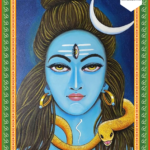
| 5 star | 0% | |
| 4 star | 0% | |
| 3 star | 0% | |
| 2 star | 0% | |
| 1 star | 0% |

| 5 star | 0% | |
| 4 star | 0% | |
| 3 star | 0% | |
| 2 star | 0% | |
| 1 star | 0% |
Related Rituals
Related products
-
Add to WishlistAdd to Wishlist
-
Add to WishlistAdd to Wishlist
-
Add to WishlistAdd to Wishlist
-
Add to WishlistAdd to Wishlist
Kum Kum Archana
₹1,001 – ₹48,048 Select options This product has multiple variants. The options may be chosen on the product page
Related products
-
Add to WishlistAdd to Wishlist
-
Add to WishlistAdd to Wishlist
Sumangali Dhan
₹200 – ₹2,000 Select options This product has multiple variants. The options may be chosen on the product page -
Add to WishlistAdd to Wishlist
Tantric Brahmana Dhan
₹500 – ₹5,000 Select options This product has multiple variants. The options may be chosen on the product page -
Add to WishlistAdd to Wishlist
Rudrabhishek
Rated 5.00 out of 5₹1,001 – ₹48,048 Select options This product has multiple variants. The options may be chosen on the product page
FAQ

After you provide us with the necessary details, our team will take 24 to 48 working hours to finalize the auspicious date and time for your Puja. This information, including the scheduled date and time, will be sent to you via email, ensuring you are well-informed and can make any necessary preparations.
All the Pujas offered by AstroBhava are conducted within our sacred Tantric temples located in Coimbatore, Tamil Nadu, and Palakkad, Kerala. These temples are specially consecrated for performing Tantric rituals, providing a powerful and spiritually charged environment for the ceremonies.
Due to the highly sacred and esoteric nature of the rituals performed in our Tantric temples, we are unable to live telecast the ceremonies. However, if you wish to witness the Puja, you are most welcome to visit our temples in person. Please notify our Customer Support team about your visit, and we will be happy to host you, allowing you to experience the rituals firsthand.
Because the rituals are conducted in our Tantric temples, we are unable to capture photographs or video recordings of the ceremonies. The sacred and private nature of these rituals prohibits any form of media documentation, ensuring the sanctity and purity of the Puja are maintained.
Yes, upon the completion of the Puja, we ship Prasad to you. This applies to all Pujas irrespective of the days choosen. The Prasad is a sacred offering blessed during the ritual, which you will receive as a token of divine blessings and positive energy.
Yes, if you opt for a 48-day Puja, a Yantra will be energized continuously for the entire duration of the ritual. The Yantra, which is a powerful Vedic device with intricate geometric patterns, will be imbued with divine energy and then locked inside a Silver Amulet. This amulet, along with the energized Yantra, will be shipped to you, serving as a source of positive energy and protection.
The 48 days correspond to the 27 Nakshatras (Birth Stars), 12 Rashis (Moon Signs), and 9 Planets, totaling 48.
A Yantra is a special Vedic device that serves as a powerhouse of supreme cosmic energy. It consists of complex geometric patterns and holy signatures. When activated, a Yantra can create a positive environment, channeling divine energies to bring about beneficial changes in your life. Each Yantra is unique and corresponds to a specific deity, enhancing the spiritual and material well-being of the person using it.
Yantras are energized through a three-day process: Jala Pradishta (drawing geometric figures, dipping in Panchakavya), Prana Pradishta (energizing with Pranayama), and Jeeva Pradishta (chanting mantras 108 times with offerings).

